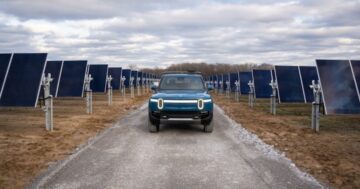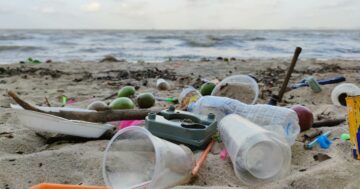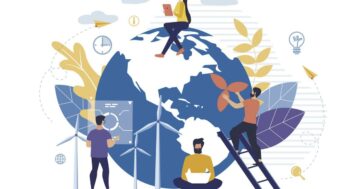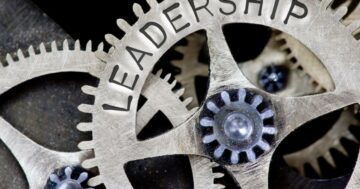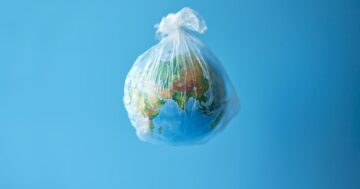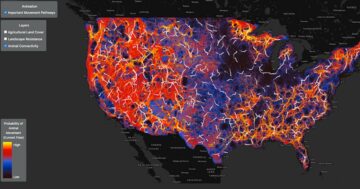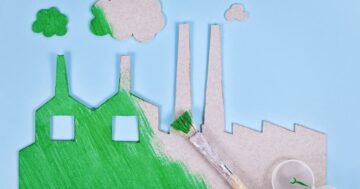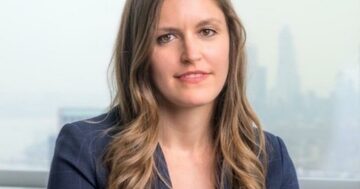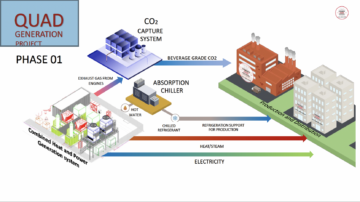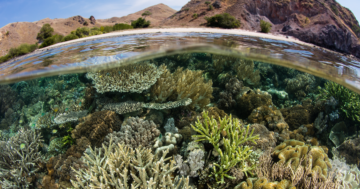
زمانی که طوفان های جدی به شهرها می رسد، محله های کم درآمد هستند به احتمال زیاد آسیب های سنگین تر و بودجه کمتری برای بازیابی نسبت به مناطق ثروتمندتر دیده شود. در طول موج گرمای شدید، کارگران مزارع روستایی که در مزارع کار می کنند ساعات طولانی را در شرایط خائنانه مواجه می کنند حفاظت های کمی تحت قانون و افزایش سطح دریا در سواحل کشورهای جزیره ای کوچک و کم منابع، ساکنان را با چیزهای غیرممکن مواجه می کند. انتخاب پرداخت هزینه انطباق یا جابجایی گران قیمت.
تأثیرات تغییرات آب و هوایی به طور نامتناسبی بر افرادی که در جوامع فقیرتر زندگی می کنند، که به احتمال زیاد رنگین پوستان در ایالات متحده هستند، و به ویژه کودکان و سالمندان در آن جوامع تأثیر گذاشته است.
هفته گذشته در کنفرانس سالانه فناوری آب و هوا GreenBiz، VERGE 21، business leaders, climate activists and tech entrepreneurs discussed how to effectively implement climate solutions to help such communities affected by climate change’s “first and worst.” Technological, policy and nature-based solutions to climate change already exist, and more are being created every day. The question is how to effectively put them in action.
به گفته کسانی که در این جوامع خط مقدم هستند و کسانی که پروژه های مختلف آب و هوایی را آغاز کرده اند، بهترین پاسخ، اعتمادسازی صادقانه و شفاف با اعضای جامعه است که در اجرای واقعی راه حل ها و سرمایه گذاری های بلندمدت در اعضای جامعه دخیل هستند.
قدرت خرید جامعه برای پروژه های جدید
در یک جلسه VERGE با تمرکز بر فناوری آب و هوا، جولیا کوماری دراپکین، مدیر عامل و بنیانگذار پلتفرم علمی مشارکتی ISeeChange، در مورد اینکه چگونه رویکردهای سنتی برای راه حلهای آب و هوایی که با جوامع آسیبپذیر کمدرآمد درگیر هستند، افرادی را که میخواهند به آنها خدمت کنند، ناامید کرده است.
“Top-down, well-intentioned solutions failed to keep pace with local means,” she said.
Drapkin’s ISeeChange is a digital tool that instead enables citizens to report the impacts of climate change around them, then works with policymakers and solutions providers to address these issues on the ground. On the mobile app, citizens can report observations of the natural world around them, from temperatures to rainfall to frost to flowers and bugs. Small talk anecdotes such as “It’s never this cold in April” or “The rhododendron never bloom this time of year,” when collected and connected together, become cold hard data that shows the effects of a changing climate.
ISeeChange’s data also serves as evidence of how communities that have been disinvested in for years often face worse impacts, and their concerns are often overlooked. “One-fifth of new public projects are cancelled due to social and environmental concerns of local communities,” she pointed out.
راه حل های از بالا به پایین و با نیت خوب نتوانستند با روش های محلی همگام شوند.
“Most of our clients have critical trust issues,” she added. For generations, outsiders have come into their communities promising to solve problems, but rarely ask what community members need, instead believing they know better themselves. Sometimes, they make the problems worse, leaving a legacy of “multigenerational toxic narratives.” Building — or rebuilding — trust is crucial for the success of projects.
The Rev. Michael Malcom, founder and executive director of The People’s Justice Council and Alabama Interfaith Power and Light, agreed. His work centers on intersectional environmental justice, and in his observed experience, those coming to low-income communities often have a “throw the [brick] over the wall” approach to providing climate technology, he said. However, they ignore factors like who will undertake the work of implementing and maintaining.
به عنوان مثال، شرکتهایی به شهر Malcom در روستایی آلاباما میآیند، به امید نصب پنلهای خورشیدی، یکی از بالغترین اشکال فناوری پاک – اما بدون خرید جامعه، نصب، استفاده نمیشوند و هیچ گونه صرفهجویی در انرژی یا مزایای آب و هوایی ارائه نمیکنند. ، او توضیح داد.
Instead, Malcom issued “a call to care for communities and a call to cooperate with communities.”
در واقع، Xiye Bastida، فعال بومی مکزیکی-شیلیایی آب و هوا، هنگام سخنرانی برای مخاطبان VERGE 21 از وضعیت مشابهی صحبت کرد. همانطور که او خواستار یک لنز متقاطع در مورد بحران آب و هوا شد، او توضیح داد که چگونه دانشگاه مکزیکو سیتی تلاش کرد تا یک پردیس جدید در زمینی نزدیک یک جامعه بومی بسازد. در حالی که جامعه بومی به مسئولان گفتند که زمین ناپایدار است، دانشگاه به هر حال پروژه را ادامه داد - اما نتوانست آن را به پایان برساند، زیرا زمین خطرناک بود و ساختمان شروع به غرق شدن کرد، درست همانطور که جامعه پیش بینی کرده بود.
“The people who have lived on the land for thousands of years know it best,” she said, urging policymakers and entrepreneurs to meaningfully listen to them.
فراتر از پروژه های آب و هوایی جدید، روی اعضای جامعه سرمایه گذاری کنید
برای سوزان سینگر، عضو قبیله ناواهو (Diné) و یکی از بنیانگذاران غیرانتفاعی Native Renewables، کار بر روی پروژه های انرژی پاک و تقویت آموزش با اعضای قبیله دست به دست می شود.
انرژیهای تجدیدپذیر بومی به جوامع قبیلهای کمک میکند تا ظرفیت فنی انرژی تجدیدپذیر و دسترسی مقرون به صرفه به برق خارج از شبکه را افزایش دهند و در راستای مأموریت کلی خود برای توانمندسازی خانوادههای بومی آمریکا با استقلال انرژی کار کنند.
In her conversation at VERGE 21, she pointed out how Native American communities are notoriously underfunded. “I think some things that are unknown are how many families need infrastructure, electricity, roads, access to clean water, even running water.”
“We know the community we work in and the culture — in some cases we know the language, because many don’t speak English,” she added, referencing her company.
She urges policymakers and entrepreneurs hoping to work to start “thinking more creatively about what communities want beyond just the project itself.”
Native Renewables, for example, not only helps build solar projects and microgrids, but also offers opportunities for community members to learn about energy, get trained in building or maintenance and more. Singer said that it’s about “trying to invest in our own people through workforce and trainings.”
این رویکردها از شرکتها میخواهد که در نحوه استقرار فناوری آب و هوا و پروژههای انرژی پاک تجدیدنظر کنند. پاسخ ما به چالش اساسی تغییر اقلیم باید دسترسی و فرصتی را در جایی که قبلا شکست خوردهایم فراهم کند، سلامت و رفاه همه را تضمین کند و برای پایان دادن به الگوها و شیوههای ناعادلانهای که ما را به این نقطه ناپایدار رسانده تلاش کنیم.

